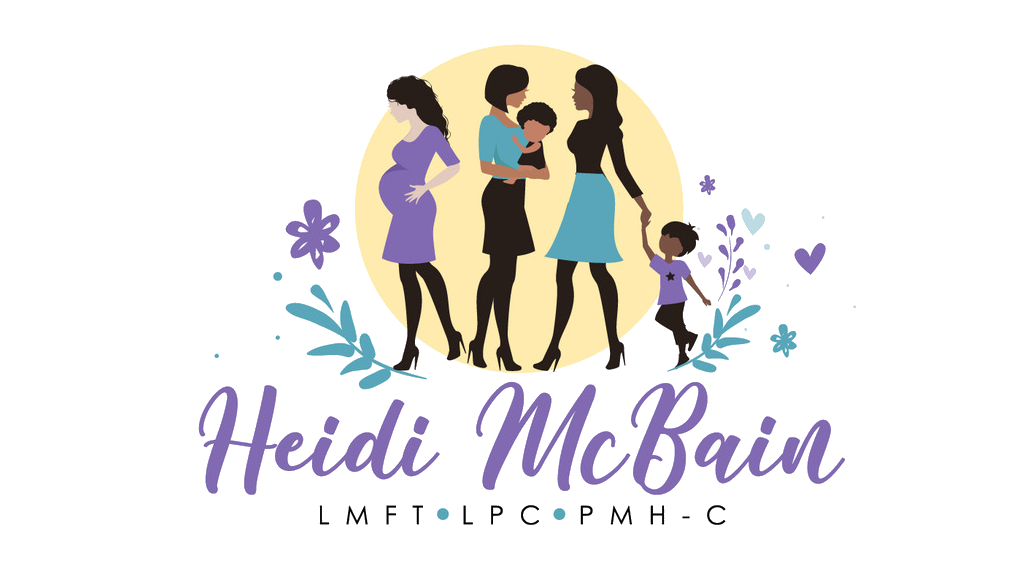

Postpartum Depression has been on my mind a lot this week. First, I just got back from the Postpartum Support International (PSI) Conference in Houston, Texas. This was a large part of the advanced training I took while I was there, understandably so, since statistics are pointing at approximately 1 in 7 new moms suffering from postpartum depression. Then, I also gave a talk this week to 30 lovely postpartum moms about relationships and self-care, and depression was a topic that came up while I was there as well. Finally, and so very sadly, there was the recent loss of a local postpartum mom in one of our surrounding communities, quite possibly to suicide. Her loss and what it means for her husband and young daughter, as well as all the other lives that she touched, has been weighing heavily on my mind as well.
All of this got me thinking about a mom who lived in my neighborhood in San Antonio, Texas years ago who I met through a local mom’s group I was active in at the time. We used to go on occasional walks together and talk at our mommy and me play groups, but I never got a true sense of who she really was as a person. She was very guarded and closed off from those around her.
She became less and less active in our groups, and eventually stopped attending completely and we slowly lost touch with each other. I ended up randomly running into her about a year later, and almost didn’t recognize her. She looked completely different from when I had last seen her. She was happy and beaming and very put together. This interaction made me realize that I never really knew her, or even saw a glimpse of who she really was before she had kids, and this image has really stayed with me over the years.
She never disclosed to me if she had suffered from postpartum depression and then got treatment, but my gut tells me she probably did. But, here’s the tricky thing, it’s so hard for new friends to know if something is off because we don’t know the before-and-after baby mom. So, this really puts more pressure on the spouse/partner, family members, long-term friends, etc. to take notice if something is different about their friend or family member post baby. Thus, more of the responsibility falls on them to support their loved one and find a trained professional to help them.
Here’s what makes depression so hard to spot in postpartum moms, and why it is so very important to find a therapist who is trained in Maternal Mental Health. To diagnose depression, clinicians look for depressed mood as well as sleep changes, loss of interest in things they usually enjoy doing, feelings of guilt, low energy, lack of concentration, changes in appetite, feeling agitated and suicidal thoughts (over a two week period).
So, do you see where I’m going with this?
A new mom is usually sleeping less than usual, may have lost interest in things they enjoy because they are focused on their new baby, may feel guilty about how they are mothering their child (or a myriad of other things), have low energy, have low concentration, and their appetite has probably changed and they may even be wondering when they last ate something.
Plus, the research is now showing that postpartum depression and postpartum anxiety often go hand-in-hand, and if one partner is suffering from one or both of these disorders, then the chance that the other partner is suffering goes up as well.
During the first two weeks postpartum, if a new mom is feeling sad or crying a lot, it is usually seen as the baby blues. It’s thought that 75% of new moms experience this to some extent (if not all of them). However, if after the first two weeks you are not starting to feel a little bit back to your pre baby self and are experiencing some or all of the symptoms of depression I listed above, you may in fact be suffering from postpartum depression.
So, what should you do?
- Reach out to a family member or friend and let them know how you’re really doing
- Talk to you doctor about your symptoms and how you’re feeling
- Find a therapist who is trained as a Maternal Mental Health Specialist. One who you connect with and who truly understands you and what you’re experiencing
- Read books on this topic such as Down Came the Rain: My Journey Through Postpartum Depression by Brooke Shields or anything by Karen Kleiman
- Listen to podcasts to learn more, such as Mom and Mind by Dr. Kat
- Contact Postpartum Support International (PSI) http://www.postpartum.net/
I want to leave you with the following thoughts: that there are people trained in Maternal Mental Health who can help you feel better; that you are not alone; that postpartum mood disorders are common and treatable; that you can heal, but first you have to be brave and ask for help and support from others!

[…] Some symptoms of depression include: sleep changes (more or less than usual), loss of interest in things you usually enjoy doing, feelings of guilt, decreased energy, loss of concentration, increase/ decrease of appetite, restlessness/agitation, and suicidal thoughts. (Depression: Why It Can Be so Hard to Spot Postpartum Depression and How We Can Better Help New Moms …) […]